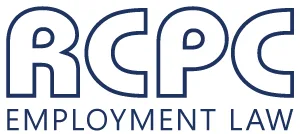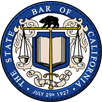The Ninth Circuit Court of Appeals has ruled that an “unlicensed junior accountant” may not be exempt from wage and hour law under the professional or administrative exemptions. The Court also ruled, in revoking the trial court’s summary judgment for the accountant, that the Defendant in this case had enough evidence for a jury to decide if the accountant was an exempt employee. Campbell v. PricewaterhouseCoopers LLP (2011) 642 F.3d 820.
Author: admin
Fixed Salary May Serve To Compensate Overtime Hours
On February 7, 2011, a Court of Appeals in Los Angeles ruled that the “explicit mutual wage agreement” doctrine is available in California wage & hour cases notwithstanding the significant changes made by the Legislature to the Labor Code more than ten years ago. (Arechiga v. Dolores Press, Inc., Court of Appeals, Second Appellate District, Division Eight, Case No. BC380124) Under an “explicit mutual wage agreement,” an employer can avoid the payment of the overtime hours worked by a non-exempt employee if the fixed salary pays the employee at least 1 1/2 the employee’s basic hourly rate for all overtime hours.
To prove the existence of an explicit fixed wage agreement, the employee must have been told: 1) The days he or she would work; 2) The number of hours he or she would work; 3) that he or she would be paid a guaranteed salary of a specific amount; 4) The basic hourly salary rate upon which his or her salary is based; 5) That the salary will cover both his or her regular and overtime hours; and 6) The agreement must be reached before the work was performed by the employee.
This decision will most likely be appealed before the California Supreme Court. Until such time as the Supreme Courts defines the availability of the explicit mutual wage agreement doctrine, employers should exercise caution and continue to pay overtime based on the effective rate of the employee. In the case of non-exempt salaried employees, the Labor Code states that the “regular hourly rate shall be 1/40th of the employees’ weekly salary.”
Relief of Discrimination Class Action Pain For Some Employers (the Wal*Mart Case)
Much will be said about the decision handed down today by the U.S. Supreme Court in the case of Wallmart Stores v. Dukes (Opinion). The main point, I think, is that most employers can be rest assured that they will not face a class action lawsuit under employment discrimination causes of action. The Supreme Court, among other things, ruled that there was no evidence that the Employer “operated under a general policy of discrimination;” because Dukes failed to identify a common mode of local manager’s exercise of discretion that would spread through the whole company. More importantly, the Supreme Court held that the potential class lacked “commonality” because, in resolving each of their individual cases, the Court would have to analyze “… literally millions of employment decisions at once.” As stated in the majority opinion, “… [w]ithout some glue holding the alleged reasons for all those decisions together, it will be impossible to say that examination of all the class members’ claims for relief will produce a common answer to the crucial question why was I disfavored.”
For the U.S. Supreme Court, what matters is not raising common questions, “… but rather the capacity of a classwide proceeding to generate common answers to drive the resolution of the litigation.”
Out-of-State employees entitled to California overtime for work done in California
On June 30, 2011, the California Supreme Court ruled as follows: “The California Labor Code does apply to overtime work performed in California for a California-based employer by out-of-state plaintiffs in the circumstances of this case, such that overtime pay is required for work in excess of eight hours per day or in excess of forty hours per week. (See Sullivan III, supra, 557 F.3d 979, 983.)” The Court also ruled that employees are not entitled to a California cause of action for unfair competition for the employer’s alleged violation of federal wage and hour law for work done out of California. See: Sullivan v. Oracle Corporation
Corporate Miranda Rights
The U.S. Supreme Court held a long time ago that communication between a corporate attorney and employees of the Company are privileged, but clarified that the privilege belongs to the corporation. That is, the company is the client of the attorney and any communication from the employee may be revealed by the company. In the course of an internal investigation, the best practice of for counsel for the employer to clarify to the employee that he or she represents the company, not the employee. To be clear, the attorney represents the best interest of the company, not the best interests of the employee.
Reference Check Immunity
It is often difficult for employer to obtain a meaningful reference from the former employer of a candidate because most employers will simply provide the “name, rank and serial number” of their former employees. In California, however, communications between former and prospective employers are privileged and the former employer would be protected from liability for defamation. The Civil Code even allows current and/or former employers to answer, if asked, whether the employer would rehire a current or former employee.
Two Premium Payments Per Workday – one for failure to provide a meal period and another for failure to provide a rest period.
The California Court of Appeals in Los Angeles recently ruled that employers are required to pay employees an additional hour of pay – as premium payment – for each work day that a meal or rest period is not provided. The Court reasoned that this means that, if an employee fails to provide an employee with both a meal and rest period, the employer is required to pay two premium payments per day – one for failure to provide a meal period and one for failure to provide a rest break. UPS v. The Superior Court of Los Angeles
The Court gave a broad interpretation to Labor Code and applicable wage order “in favor of protecting employees…”
A “work schedule” divided between two “workdays” may not be a “Split-Shift” according to the Court of Appeals
The California Court of Appeals ruled, on July 7, 2011, that the definition of “workday” is not necessarily related to the definition of “work schedule.” A work schedule means a designated period of work, while a workday is any consecutive 24-hour period beginning at the same time each calendar day. The Court noted that a “split shift” happens when a “work schedule” in interrupted by a non-paid non-working period established by the employer, other than a rest or meal period. For that reason, the Court held that an overnight shift what overlaps a workday is not a split-shift because the shift is continuous and is not interrupted by a non-working break established by the employer. See: Securitas Security Services USA, Inc. v. Superior Court.
Domestic Workers’ Bill of Rights (CDWBR)
The California legislature is currently considering the Domestic Workers’ Bill of Rights (AB 889). According the Assembly Bill’s authors, there are 200,000 domestic workers in California that would be benefited by a clarification in the applicable employment laws. The CDWBR would guarantee overtime pay, meal and rest breaks and paid vacation for in-home care givers. The bill is pending passage in the Senate and would have to survive a veto by the Governor, however, the State of New York last year approved a similar bill and California is not likely to “stay behind.”
Unlicensed Junior Accountant May Be Exempt from Overtime
The Ninth Circuit Court of Appeals has ruled that an “unlicensed junior accountant” may not be exempt from wage and hour law under the professional or administrative exemptions. The Court also ruled, in revoking the trial court’s summary judgment for the accountant, that the Defendant in this case had enough evidence for a jury to decide if the accountant was an exempt employee. Campbell v. PricewaterhouseCoopers LLP (2011) 642 F.3d 820.






